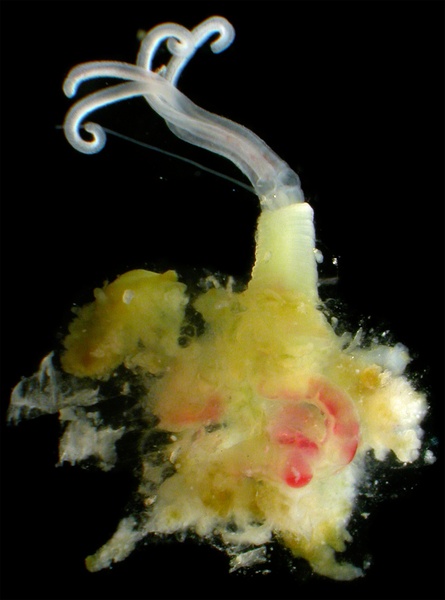Two new species of rare whale-bone eating worms have been found in deep Antarctic waters, according to research published today in Proceedings of the Royal Society B.
The discovery of red-plumed Osedax antarcticus and O. deceptionensis are the results of investigations by an international collaboration of marine biologists, including experts from the University of Aberdeen, led by London’s Natural History Museum and the University of Gothenburg in Sweden.
Their findings also revealed Osedax's wood-eating cousins - the Xylophagainae molluscs - were nowhere to be found, leading the scientists to believe famous shipwrecks such as Shackleton’s Endurance, could actually remain entirely preserved in the depths of the Antarctic.
The Endurance was the ship that Sir Ernest Shackleton used to sail to Antarctica in 1914 on the epic Imperial Trans-Antarctica Expedition. However, the ship was beset in the ice of the Weddell Sea and later sank leaving 28 men stranded on the ice for two years.
The team examined whale bones and planks of wood which had been left on the sea floor for over a year.
The lead researcher, Dr Adrian Glover from the Natural History Museum in London, said: "We designed the experiment to search for two of the strangest animals that live in the deep sea – bone-eating Osedax worms that consume whale bones at the seafloor, and their 'wood-eating' Xylophagainae bivalve mollusc cousins that do a very similar thing to wood.”
Experts from the University of Aberdeen’s Oceanlab – who have been pivotal in discovering entirely new species in world’s deepest ocean trenches – were called upon to create the technology required for the unusual task in the deep Antarctic.
Dr Alan Jamieson from Oceanlab, a specialist in the design and scientific use of deep-sea landers said: When Adrian called with such a bizarre request it seemed crazy not to get involved. We quite literally dug the remains of two old landers from the back garden of the laboratory, fixed them up and posted them to the Swedish Antarctic vessel, ready to embark on its voyage.”
Over the course of a year, they deployed and recovered the deep-sea lander, ladened with a most unusual cargo – large whale bones and planks of wood.
Dr Glover continued: “Whilst we were excited by the discovery of the first new Osedax worms from Antarctica, we were even more intrigued by the perfectly-preserved wood.
“It occurred to us that the dramatic contrast between the heavily-consumed bone and the pristine wood was indicative of how the Antarctic is relatively isolated from other ocean basins – the tiny larvae of the wood-eating worms could not reach the Antarctic from nearby continents.
“The pristine condition of the wood also means it’s likely that Antarctic wooden shipwrecks such as Endurance, lost on Shackleton's epic voyage might be remarkably well preserved.
“A new DNA analysis of the Osedax worms also revealed that the seven described species in the genus are most closely related to the tiny mud-dwelling 'beard worms' that use specialist bacteria to consume chemicals in oxygen-poor muds.
“This provides new clues as to how these bizarre animals evolve. Perhaps at some point after whales first appeared in the oceans, ancestral worms were able to make the evolutionary leap from sulphidic-muds to whale carcasses.”
Dr Jamieson added: “This research exemplifies how important scientific discoveries in extreme environments can be made using very simple yet innovative approaches.”


